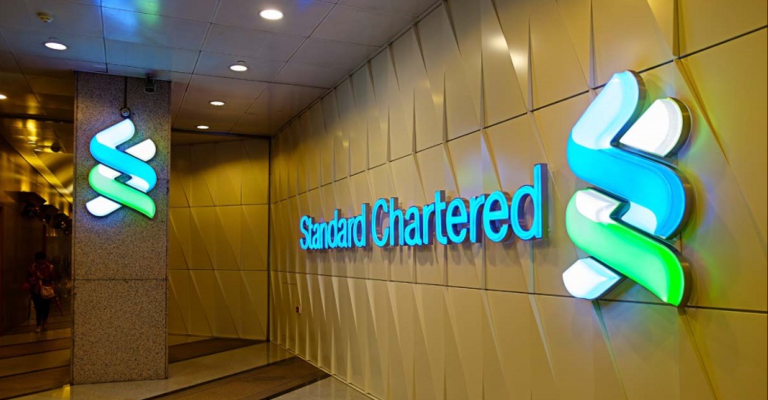Standard Chartered Bank has projected that more central banks across the globe will likely ease monetary policy settings in 2024 as they battle economic headwinds.
The Global Chief Investment Officer at Standard Chartered Bank’s Wealth Management unit, Mr. Steve Brice stated at the presentation of the Bank’s Global Market Outlook 2024 tagged ‘Sailing with the Wind’ in Lagos.
He noted that Central banks will be aware that lower inflation means higher real interest rates, tightening monetary conditions.
Brice added that slower growth is likely to give the Fed the cloud cover to ease policy, with other central banks to follow suit.
- “Indeed, the US has already indicated that this is the line of least resistance based on its current projections.
- “While the US economy has been resilient so far, we are starting to see some signs of a deceleration. The good news is the US Federal Reserve has indicated a willingness to ease policy earlier than anybody expected.
- This is likely to increase hopes of an economic soft landing, especially with the inventory cycle becoming increasingly supportive and the labour market remains tight,” he said.
Inflation to decelerate
According to Brice, 2023 was the story of goods prices decelerating. 2024 is likely to see service sector inflation decelerate, with shelter inflation potentially even moving into deflationary territory later in the year.
Positive bond equity correlation
Brice noted that the company’s analysis shows that when inflation is high, bonds and equities are normally positively correlated.
This according to him makes sense as high inflation means central banks cannot worry too much about growth.
- “In this environment, upside inflation surprises lead to fears of monetary policies remaining restrictive and slower economic growth, which is bad for both stocks and bonds.
- However, the reverse is also true – falling inflation reduces the pressure on central banks to raise interest rates and raises the possibility of rate cuts, which is good for equities and bonds.
- Once inflation falls to sub-2.5%, then the bond-equity relationship is likely to normalize (turn negative), increasing the portfolio diversification benefits of owning bonds in your portfolio”.
Bond yields
Brice said that slower economic growth, lower inflation, and interest rate cuts are likely to lead to lower bond yields.
- “However, we continue to prefer Developed Market bonds with high credit quality as we view these as more attractive on a risk-return basis.
- Of course, higher yields (and potentially higher returns) may be available elsewhere in the bond asset class, but at a time when growth is set to slow and the risks are skewed to the US and European economies tipping into a recession, we believe the risk-return here is less favourable.
- This is exacerbated by the fact that valuations, in the form of credit spreads, are expensive,” he said.
Global equities to rally into early 2024
Brice noted that reduced concerns over a hard landing, alongside expectations that monetary policy settings are going to be eased, means the equity rally has further to extend.
This according to him should be further supported by the fact that earnings are likely to recover in 2024 after stagnating last year.
Need to put hedges in place
He advised investors not to have all their eggs in one basket, despite how convinced they are about the outlook.
Brice noted that from the company’s perspective, the most likely risk is a downside growth surprise.
- “In this situation, we would expect the bond-equity correlation to turn negative and our overweight allocation to high-quality bonds should cushion the blow from equity underperformance.
- The less likely, but more challenging, risk is a resurgence of inflation. In this situation, we believe liquid alternatives, gold, and infrastructure assets are important diversifiers.
- In summary, we see the start of 2024 as beneficial for investors. However, we feel less confident about projecting this through the whole of 2024.
- Therefore, we would look for signs that greed is becoming pervasive, or that the US economy is heading towards a recession, to reduce risk exposures at some point this year,” he said.

